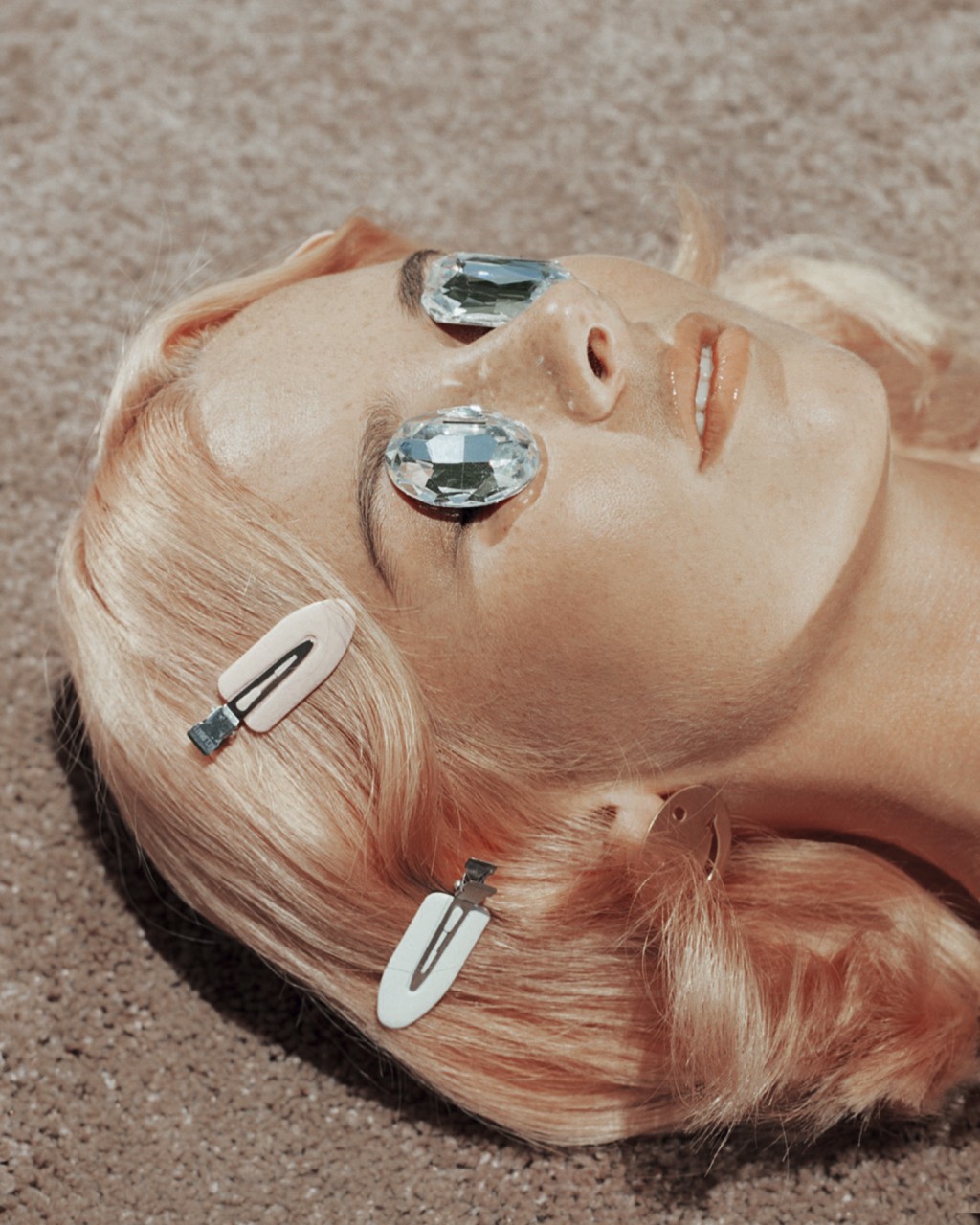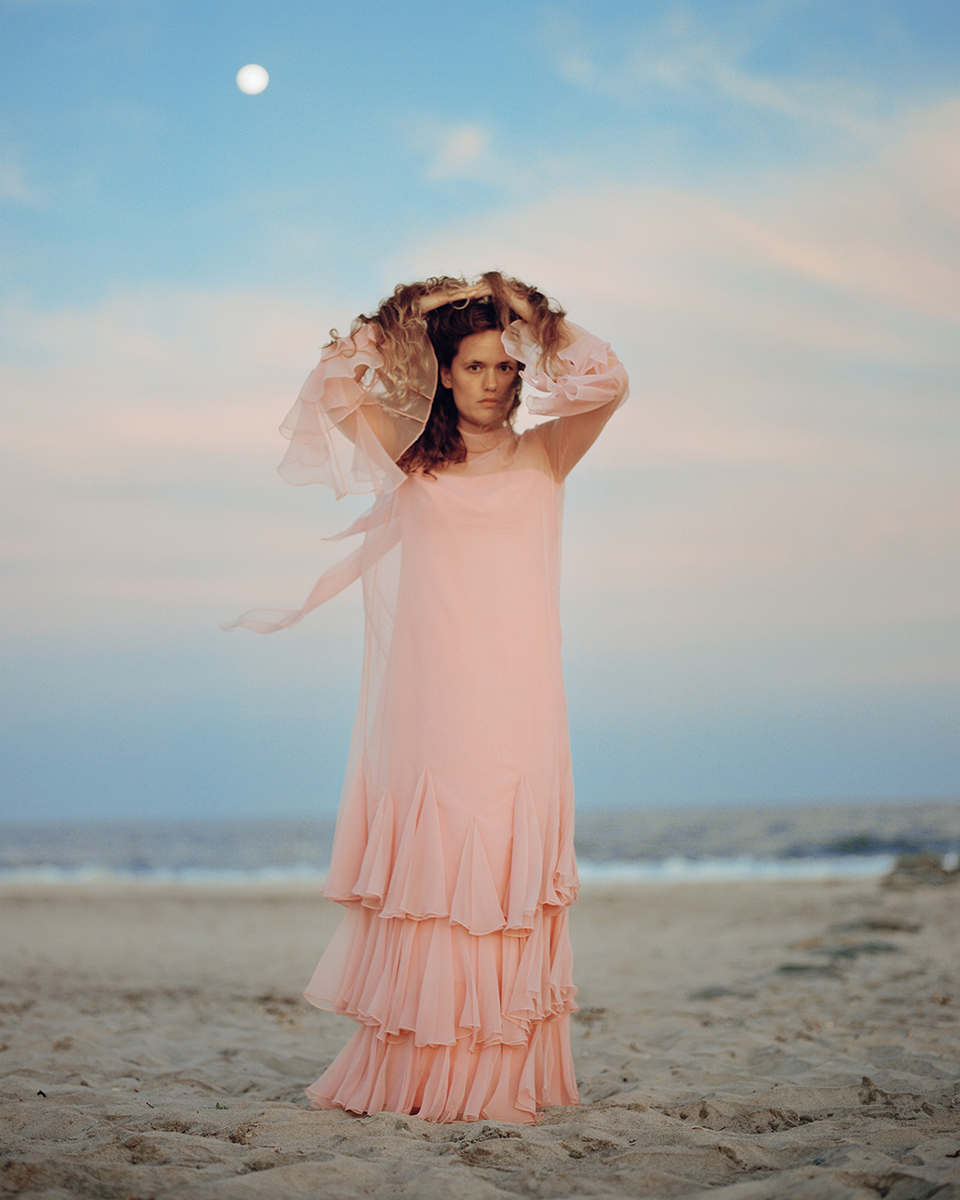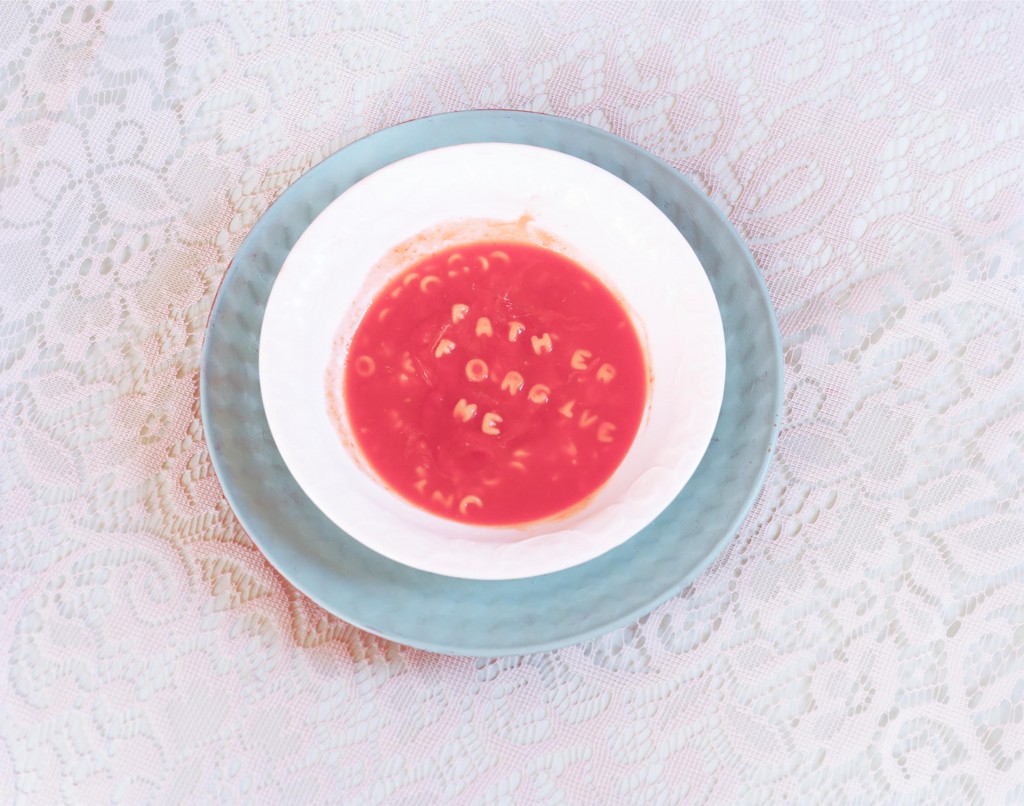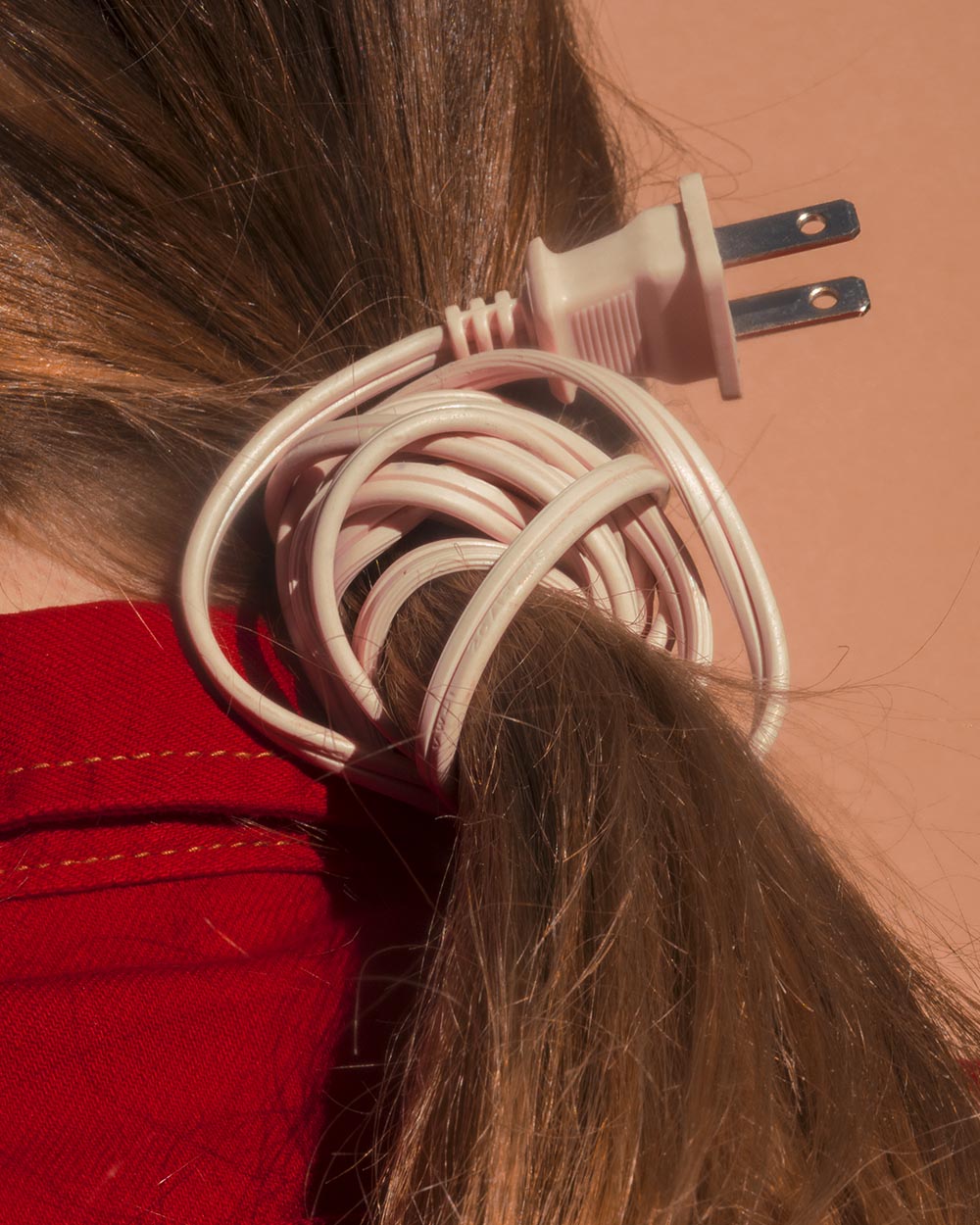On letting your aesthetic lead the way
Prelude
Kelia Anne MacCluskey is a photographer and director based in Los Angeles who received her BFA in photography from the Savannah College of Art & Design in 2016. MacCluskey creates a fictional world by incorporating strong and conflicting visuals that quietly “feel wrong.” Her photos reference subject matter that has a sense of familiarity, but she then decontextualizes and re-imagines the imagery, illustrating a timeless and indescribable era.
Conversation
On letting your aesthetic lead the way
Photographer Kelia Anne MacCluskey on the delicate dance of working with clients, and learning how to be your own best advocate in a way that doesn't feel terrible.
As told to T. Cole Rachel, 2748 words.
Tags: Photography, Beginnings, Inspiration, Success, Independence, Income.
When you came out of school, did you have a pretty clear idea of the career path you wanted and what you wanted to do with your work?
I just wanted to make money and survive by doing photography. I didn’t want to be rich or anything. That wasn’t the kind of success I desired. I just wanted to get by and feel satisfied at the end of the day, like I made something beautiful. To be able to say, “I made my heart happy with what I did today,” and then sleep peacefully.
As far as figuring out how to get to that point, that took me a minute. I graduated and I moved back home, and I was living with my mom. It was amazing that she would let me stay there and not pay rent, but psychologically it was very restrictive. I was sending 20 emails a day to different clients and people I wanted to work with saying, “Here’s my work. I’d love to work for you!” And just never hearing back from 99% of those.
So, I finally got enough jobs to save just enough for one month in LA. I packed up my car, and I was like, “Okay, bye mom. I’m doing it.” She cried, but she knew that it was necessary, and I knew it was necessary. It took me a year to kind of figure that out, but I just knew that that was a step I needed to take to get my foot in the door somewhere.
During that year of living at home again, were you making your own creative work while also trying to get jobs?
I was trying to. I had some editorial assignments during that time, but I found that my desire to create kind of left me. I wasn’t in school anymore, where everyone around me was creative and working really hard. I didn’t have all the resources that I’d had when I was at school, but I was really just making excuses. Like, “Oh, I don’t have film processing anymore. I guess I have to shoot digital.” I feel like the second I moved to LA, whatever creative divine energy there is in the world reentered by body and then it just kind of worked out.


How did you deal with the divide between making your own creative work, and doing editorial work where you need to follow someone else’s directive?
The cool thing is through my schooling I feel like I really defined by vision and my taste. I had the opportunity to do that because I was able to mess up in class, do a not great project, and then figure out why it was bad, problem solve, and move on from that. When I was first getting clients, a lot of them would approach me and say, “We want you to do what you’re already doing.” I never felt like I had to compromise my vision for a lot of commercial clients, which is incredible. It’s not common, I don’t think. I’ve also had clients be like, “We just need some basic product shots. We know you’re technically capable of doing this,” so I do that and I’m able to pay rent, and it doesn’t take away from my artistic merit or anything.
People who are totally unwilling to compromise on things, especially when first starting out, are often people who aren’t having to pay their own rent.
Exactly. It’s very entitled. I understand being an artist isn’t an easy gig in general, but yeah. It’s about getting to a point where people are approaching you because you have something that they want, not just because you know how to use a camera. It’s because there is a beautiful brain behind that camera. But that doesn’t happen overnight.
There is this balance between doing what you feel good about, but also giving the client what they need. I always imagine that balancing those two things is a skill that you get better at the more you do it—negotiating time, money, and also getting across your point of view.
Sometimes I can easily get to the point where I’m able to convince a client that I know best, even though that’s a hard thing to do sometimes, especially considering my age. Just being like, “I promise you that if you make this decision, or if you let me do this thing, you’re going to be happy,” and always providing two options. First doing what they want, and then taking five minutes on the shoot to do what I want, and then presenting my little, “I think this is going to be more successful,” alongside what they originally wanted. I kind of have to prove to them that I know best, but still make it feel like it was part of their decision. It’s very manipulative, but it works.


There’s a certain people skill involved in doing any of this kind of stuff, and if you’re not good at that part of it, too, it doesn’t really matter how good you are technically.
I’ve had to learn that recently. When I was in school, I was by myself with the subject, just doing everything on my own. Now that I’ve had to work with more teams and crews, my communication skills have changed significantly. I had to learn the right vocabulary on set for talking to a lighting gaffer. Learning to speak the same language. The same is true when speaking with an art director. You have to change your language for each person who you’re working with. Before, I only had to convince myself of things.
You’ve worked with very small, individual clients as well as with big corporate entities, which often involves dealing with entire teams and lots of approvals. How has that experience been?
The whole thing of getting approval from higher and higher up, that’s been fine. It takes a little bit longer to get things approved, but as far as working with bigger clients—or celebrities and musicians—it’s amazing because at first when I meet them I’m a little bit fan-girly and giddy, but then I spend some time talking to them and I’m like, “Oh, they’re just a human being.” I usually try and make them laugh within the first five minutes, and that kind of clears everything up. I’ve heard that a lot of photographers have an attitude where they often think they’re better than the subject, or they have complicated demands, but I don’t think that’s really efficient when you’re trying to capture somebody or make a portrait.
But yeah, as far as big corporate clients are concerned, it just felt pretty natural transitioning into that world. I don’t know how or why. I think it’s just because I love people deep down, and even the people who are awful to work with, my goal at the end of the day is to break them and find what makes them soft.
As a young person, still relatively new and freshly out of school, how often do you have to deal with the issue of not being taken seriously? When I was a young freelance writer I would often experience that, but I could also be self-defeating in that even when I wasn’t experiencing it, I was imagining it. Feeling insecure, but appearing confident. I’m curious about what your experience of that has been. Did you feel like you had to work harder to be taken seriously either because of your age or because of your gender?
Oh, absolutely. All of the above. The most recent experience I had was on a music video set where I was the director. I would ask, “Hey, can we do this? Hey, can we do this?” and just be kind of ignored. A lot of the time when you have a crew that’s really big and working on a bunch of different things at once, if I come in as the director, there’s a bit of, “She doesn’t know what she’s doing. She doesn’t have experience on a film set.”
So when I would ask for things, there was a lot of, “No, that’s going to cheapen the shot,” or “No, that’s not going to work because the sun is in this position in the sky right now”—as if I’m not able to look up and see the sun myself. When that happens, I try not to let it get to me. I try and take a deep breath and remain patient, and then I go and do the thing myself to kind of politely prove them wrong.</span> Usually when I do the work myself there’s a bit of respect that’s earned, especially with the sun positioning thing.
That’s the only way I’ve learned to deal with that. It’s usually just little comments and the unwillingness to do things that I try and politely ask for. It’s maddening. Like I said, the only way I can really handle it in a way that’s not going to make everyone upset is just to be sweet about it, which is frustrating because there are times when I just want to scream. But I don’t want to prove them right, especially if they’re making assumptions about my age and my gender.
It always takes more energy to focus on the negative thing that’s going on than to just find the solution for it, and that’s kind of my goal on set as well. If something goes wrong, if somebody’s not responding to me well, there’s always a solution and there’s always going to be a way to maintain positive energy on set and to continue making beautiful things. But, yeah, it’s just a lot of deep breaths.

How do you currently organize your creative life between commercial work and personal work? Is there an ideal balance?
It’s kind of amazing because most of the jobs I’ve gotten recently are things I’m excited about, and they’ve got a budget. Every time I check my email and I have a new job, I have butterflies. I’m like, “Oh my gosh, amazing. Another project where I can work with somebody or come up with a new concept.” My commercial work tends to feel very personal, so there isn’t always a huge separation. Also, I’ve just been handling it by myself somehow. I know a lot of people have agents or representation, but I think that would take away the magic of checking my email in the morning.
I don’t always know how people find me. A lot of the time it’s through Instagram. Before I was sending 20 emails a day trying to find clients, and now I don’t have to send blind emails anymore. It’s just word of mouth and people seeing my work. It’s gotten to the point where I’m able to say no to projects that I’m either not interested in or just don’t feel up my alley. I feel so blessed because often it’s so effortless, but at the same time I know I’ve worked really hard to get to this point. It didn’t just happen.
It’s cool that you’ve been able to do everything on your own. How tricky has it been to deal with negotiating your fee and things like that? That’s something that a lot of people—particularly young artists—struggle with, knowing how much your time and work are worth.
That’s been the hardest thing for me, actually, because raising my rate just feels so uncomfortable. It’s like, I can’t even believe how much I think I’m worth. Like, really? Honestly, that’s the only reason I’d want an agent is to make sure that I was getting paid what was fair and to avoid having those uncomfortable conversations. So often I’ll get wrapped up in the fun, creative part, and then I’ll have to be like, “Oh, wait, how do I make this fair for myself and still fair for the client?”
So far it’s just been trial and error, and as I’m getting more work, I’ve been raising my rate a little bit more. At the same time, I’m not too much of a big shot to say yes to a free, beautiful project. I don’t have an ego that big, it’s just a matter of scheduling and if I have time for something and then, like we’ve talked about, it’s also about paying rent.
It’s just hard because there’s no formula. It’s different for every photographer and every client, so it’s just a matter of feeling comfortable saying you know what you’re worth, and if somebody isn’t willing to pay you that, having the ability to say no to them. It’s about not sacrificing something that you know you’re worth for a client who’s going to take advantage of you.


Your work has a very specific aesthetic. Do you imagine that you’ll ever do something totally different? Also, when people love the vibe of your work and it’s helping you get jobs, how hard is it to change?
I feel like if I don’t change my aesthetic then I’m doing something wrong. Not that the change should be forced, I just think that if I’m growing as a human and being inspired by different influences, different people, and different environments, then my work should transform and grow. It should still feel inherent to what I want to create, but it should change. It should never feel like I’m faking my work. The only thing I feel like I should be faking is the, “Oh, yeah, I know exactly what I’m doing,” part. I don’t think anyone ever knows exactly what they are doing, but you’re definitely respected more on set if you pretend that you do.
But yeah, I hope to grow and evolve. That’s always in the back of my mind. When I was meeting with some clients in London this past week, I was explaining how simple my process usually is with light setup and all of that, and one of my bosses asked, “Do you do that because you like it, or because you’re just comfortable with it?” That rocked my world a little bit. I was like, “Oh, am I getting too comfortable?” Now I have it in the back of my mind that I need to maybe mix things up—not just for the sake of mixing things up, but because I should be experimenting and finding out if there’s something new that’s inspiring to me that might just transform my work.
With any kind of creative work, it’s easy to fall back on these things that feel comfortable and right. It’s not always easy to challenge yourself as much as you should.
That’s true. Especially in your professional work. I was able to experiment all the time in school. I was able to try out every single aesthetic, every type of subject matter. I was able to make really bad work, and I wasn’t suffering from doing it. We had critiques, but people were usually way too nice. Still, I knew when I put something on the wall that was bad. I had that feeling in my stomach, but at least I was trying. It’s a little bit different when you’re working because you’re like, “Oh, I have a client waiting on these images, counting on these to be good.” That isn’t always a safe space for real experimentation. I think the experimenting has to come from personal work, which I need to remind myself to set more time aside for. But yeah, I think it’s totally necessary to try new, weird things. Always.

Kelia Anne MacCluskey Recommends
gardening specifically to attract hummingbirds
roland barthes
cold brew coffee mixed with coconut la croix
covers of playboy magazine from 1962-1985
the sky 7 minutes after the sun sets
- Name
- Kelia Anne MacCluskey
- Vocation
- Photographer

Some Things
Pagination



